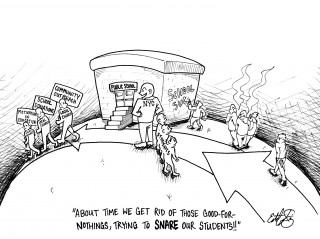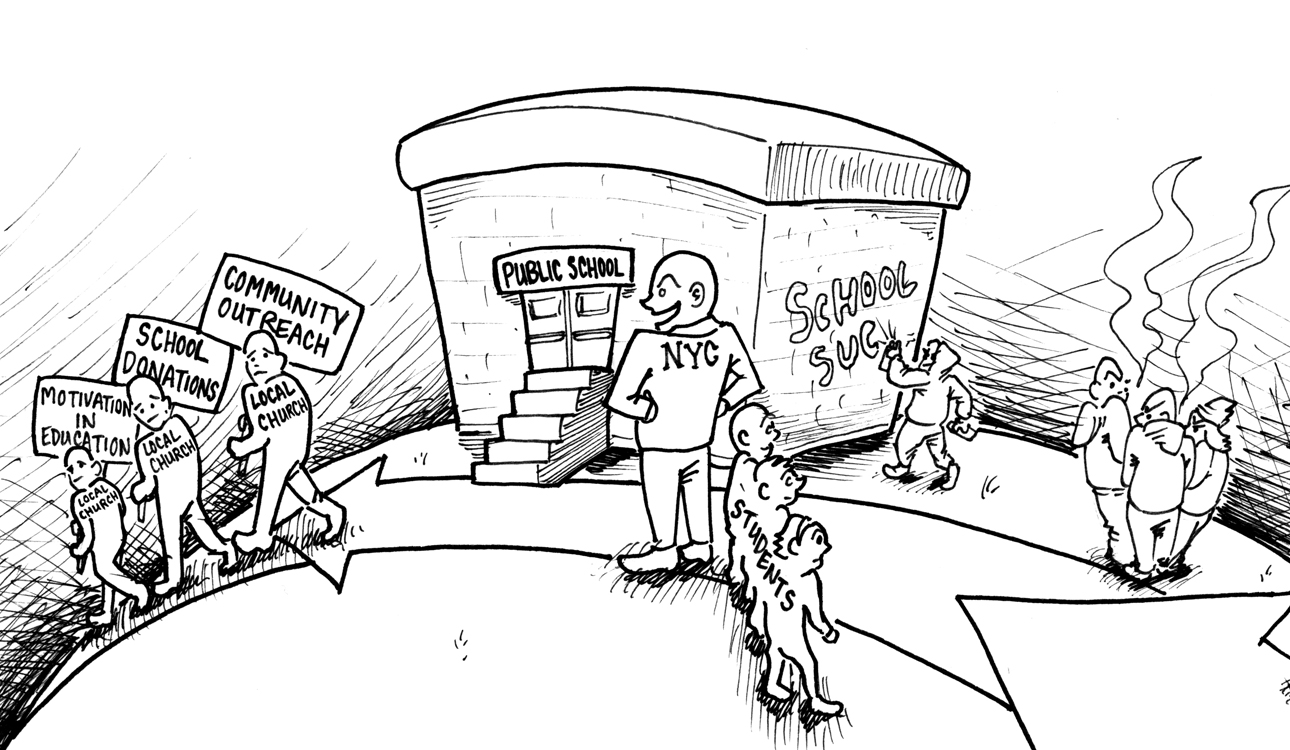
Sunday was a somber occasion for many churches in New York City this week. Due to a federal appeals court decision, Feb. 12 marked the last Sunday religious services could be held in public schools in New York City.
The congregations forced out of their rented space worry about finding an affordable alternative. Many have vowed to fight what they see as an unconstitutional attack on religion.
The city and the New York Civil Liberties Union argue that allowing churches to meet in public schools violates the separation of church and state. Though congregations meet when school is not in session, supporters of the city’s policy say a church’s constant presence in a school building changes the brick and mortar structure from a school to a church.
They cite the propensity of churches to advertise their location and reach out to local neighborhoods as evidence of the invasive nature of the school-church relationship.
Members of the affected congregations cite that same relationship as a reason why they should be allowed to stay. Park Slope Presbyterian invested both time and resources in John Jay High School—the school received a new scoreboard, free tutors and help painting hallways and reorganizing the library.
Victory Outreach Church, which held services in Public School 57 in East Harlem for 18 years, had developed relationships with area gang members, drug addicts and mothers who lost children to gun violence, according to the New York Times. The church, which could not afford rent in the neighborhood, will be forced to leave the area entirely.
Grace Fellowship Church, which has met at Public School 150 for eight years, participated in graffiti removal and worked with the school’s drama program, one of few remaining in the city.
Forcing these churches out of their rented homes will sever a community-school relationship that has become increasingly rare in today’s society. As education loses funding from every side, a city policy that forbids schools to accept rent while alienating an important volunteer force seems obtuse.
To argue that a group meeting held on Sunday somehow changes the character of the building the rest of the week seems a little paranoid.
Apparently the Boy Scout, and other secular organizations that pay the same rent and follow the same rules have no such power.
If the character of the public schools has been changed, it is because a community of citizens has taken an interest in the school’s well being.
Last time we checked, the First Amendment does not prohibit believers from becoming involved in the beautification of a school, or the rehabilitation of a community’s members.
Actually, the last time we checked, the First Amendment says Congress shall make no law prohibiting the free exercise of religion. Contemporary discussion of separation of church and state comes from a letter written by Thomas Jefferson and a Supreme Court decision (Engel v. Vitale) concerning prayer in schools. The phrase does not appear anywhere in the Constitution.
New York’s policy regarding church meetings in school buildings is dangerous because it has the potential to set a precedent. The New York Senate passed a bill Monday that would overturn the ban, but it must be approved by the Assembly to take effect. We call on the lawmakers of New York to rectify an error made in ignorance.






